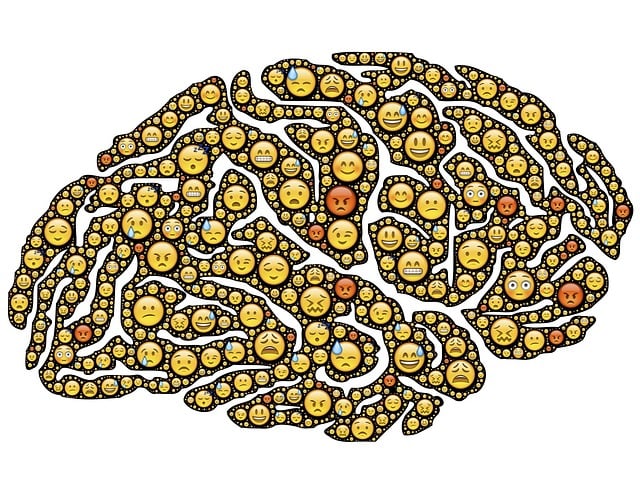Lakewood German Speaking Therapy (LGST) emphasizes cultural sensitivity in mental healthcare, addressing unique challenges faced by German-speaking communities in diverse areas like Lakewood. LGST overcomes language barriers and unconscious biases through qualified therapists providing culturally competent therapy in German. They integrate patients' cultural contexts into sessions, validating experiences and tailoring techniques, fostering trust for accurate diagnoses and tailored treatment plans. LGST advocates for inclusive policies, prevents therapist burnout, and promotes mental well-being among German-speaking populations.
In today’s diverse society, cultural sensitivity is paramount in mental healthcare. Understanding and addressing cultural nuances can significantly enhance therapeutic outcomes. This article explores the importance of cultural sensitivity, delving into challenges faced in a multicultural context. We highlight the unique approach of Lakewood German Speaking Therapy, showcasing its role in providing culturally competent care. Additionally, practical strategies for therapists to navigate these complexities and foster inclusive practices are discussed.
- Understanding Cultural Sensitivity in Mental Healthcare
- Challenges and Barriers in a Diverse Society
- The Role of Lakewood German Speaking Therapy
- Strategies for Culturally Competent Practice
Understanding Cultural Sensitivity in Mental Healthcare

Understanding Cultural Sensitivity in Mental Healthcare involves recognizing that every individual enters therapy with a unique cultural lens shaped by their upbringing, beliefs, and experiences. This lens can significantly influence how they perceive and express mental health issues, as well as their expectations from therapy. At Lakewood German Speaking Therapy, we emphasize the importance of cultural sensitivity because it’s not just about treating symptoms; it’s about understanding and respecting the complex interplay between a client’s culture and their mental health.
Building empathy within therapeutic relationships is a key strategy for cultivating cultural sensitivity. Mental health professionals must be adept at listening to their clients’ narratives, validating their experiences, and reframing their perspectives. This not only fosters trust but also enables more accurate diagnoses and effective treatment plans tailored to each client’s cultural background. Furthermore, mental health policy analysis and advocacy play a crucial role in promoting culturally sensitive practices by shaping systems that support diverse therapeutic approaches and risk management planning for professionals.
Challenges and Barriers in a Diverse Society

In a diverse society like Lakewood, where individuals from various cultural backgrounds coexist, mental healthcare practices must be sensitive to these differences. One of the primary challenges is the language barrier, particularly when serving German-speaking communities. Accessing qualified therapists who can provide German-speaking therapy in a culturally competent manner is essential for effective treatment. This need is highlighted by the rising rates of anxiety and depression among ethnic minorities, exacerbated by the unique cultural nuances that may influence how these conditions manifest.
Moreover, healthcare providers must be vigilant about unconscious biases that could inadvertently affect patient care. Stereotypes and generalizations can lead to misdiagnosis or inappropriate treatment plans, especially when dealing with culturally diverse patients. For instance, burnout is a growing concern among healthcare professionals, and strategies like stress management and self-care are vital to prevent professional exhaustion. When cultural sensitivity is lacking, these strategies may not be tailored to address the specific needs and experiences of patients from different ethnic or linguistic backgrounds, further complicating the quest for Anxiety Relief and Depression Prevention.
The Role of Lakewood German Speaking Therapy

Lakewood German Speaking Therapy plays a vital role in enhancing cultural sensitivity within mental healthcare. By offering services tailored to individuals of German-speaking backgrounds, this therapy provides a safe and familiar environment, fostering better communication and understanding between therapist and client. This is particularly significant in addressing the unique challenges faced by immigrant and refugee populations, who may struggle with language barriers and cultural differences when seeking mental health support.
The therapy focuses on integrating coping skills development within a culturally sensitive framework. It encourages clients to draw upon their cultural resources and traditions while navigating mental health concerns, thereby promoting resilience and self-care practices that resonate with their personal identities. Furthermore, Lakewood German Speaking Therapy contributes to the broader Mental Health Awareness by advocating for inclusive policies and practices that recognize and respect diverse cultural needs in the mental healthcare system, as exemplified through its involvement in Mental Health Policy Analysis and Advocacy initiatives.
Strategies for Culturally Competent Practice

In the pursuit of providing culturally sensitive mental healthcare, therapists at Lakewood German Speaking Therapy employ a multitude of strategies to create an inclusive environment that respects and values diverse cultural backgrounds. One key approach is incorporating patients’ cultural contexts into therapy sessions, enabling practitioners to understand and address unique perspectives on health, illness, and healing. This involves active listening to patient narratives, validating their experiences, and tailoring therapeutic techniques to align with their cultural beliefs and practices.
Additionally, fostering open communication is vital. Therapists are trained in effective communication strategies that promote emotional well-being promotion techniques, ensuring patients feel heard, respected, and understood. Encouraging honest dialogue, using accessible language, and being mindful of nonverbal cues create a safe space for individuals to express themselves authentically. Furthermore, preventing burnout among therapists by implementing support systems and self-care practices is essential, as it allows professionals to maintain cultural sensitivity over time and provide sustained quality care.
In today’s diverse society, cultural sensitivity in mental healthcare is paramount. By understanding the unique challenges and barriers that different cultural groups face, practitioners can provide more inclusive and effective services. The integration of Lakewood German Speaking Therapy demonstrates a commitment to addressing these issues, offering specialized support for German-speaking individuals. Adopting culturally competent strategies, such as learning about diverse cultural beliefs and practices, is essential to ensuring every patient receives care tailored to their specific needs. This approach not only enhances therapeutic outcomes but also fosters trust and strengthens relationships between mental health professionals and their clients.














